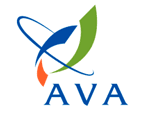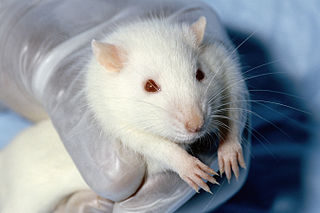Related Research Articles
The World Organisation for Animal Health, formerly the Office International des Epizooties (OIE) is an intergovernmental organization coordinating, supporting and promoting animal disease control.

The Department for Environment, Food and Rural Affairs (Defra) is the government department responsible for environmental protection, food production and standards, agriculture, fisheries and rural communities in the United Kingdom of Great Britain and Northern Ireland. Concordats set out agreed frameworks for co operation, between it and the Scottish Government, Welsh Government and Northern Ireland Executive, which have devolved responsibilities for these matters in their respective nations.

The Animal and Plant Health Inspection Service (APHIS) is an agency of the United States Department of Agriculture (USDA) based in Riverdale, Maryland responsible for protecting animal health, animal welfare, and plant health. APHIS is the lead agency for collaboration with other agencies to protect U.S. agriculture from invasive pests and diseases. APHIS's PPQ is the National Plant Protection Organization for the U.S., and the agency's head of veterinary services/veterinary Deputy Administrator is the Chief Veterinary Officer of the United States.
The Canadian Food Inspection Agency is a regulatory agency that is dedicated to the safeguarding of food, plants, and animals (FPA) in Canada, thus enhancing the health and well-being of Canada's people, environment and economy. The agency is governed by the Minister of Agriculture and Agri-Food and Minister of Health.

The Animal Welfare Act was signed into law by President Lyndon B. Johnson on August 24, 1966. It is the main federal law in the United States that regulates the treatment of animals in research and exhibition. Other laws, policies, and guidelines may include additional species coverage or specifications for animal care and use, but all refer to the Animal Welfare Act as the minimally acceptable standard for animal treatment and care. The USDA and APHIS oversee the AWA and the House and Senate Agriculture Committees have primary legislative jurisdiction over the Act. Animals covered under this Act include any live or dead cat, dog, hamster, rabbit, nonhuman primate, guinea pig, and any other warm-blooded animal determined by the Secretary of Agriculture for research, pet use or exhibition. Excluded from the Act are birds, rats of the genus Rattus, mice of the genus Mus, farm animals, and all cold-blooded animals.
A food safety agency or food administration is a kind of agency found in various countries and international organizations with responsibilities related to food, primarily with ensuring the safety of food sold or distributed to the population, and with ensuring that food sellers inform the population of the origins and health qualities and risks associated with food being sold.

The Agri-Food and Veterinary Authority of Singapore (AVA) was a statutory board under the Ministry of National Development that regulated food safety, safeguarded animal and plant health, and facilitated the agri-food and fisheries trade sectors. AVA was disbanded on 1 April 2019, with duties being transferred to other statutory boards, Singapore Food Agency, National Environment Agency, Health Sciences Authority, and National Parks Board.

Animal testing regulations are guidelines that permit and control the use of non-human animals for scientific experimentation. They vary greatly around the world, but most governments aim to control the number of times individual animals may be used; the overall numbers used; and the degree of pain that may be inflicted without anesthetic.
President Chester A. Arthur signed the Animal Industry Act on May 29, 1884 creating the Bureau of Animal Industry (BAI), an organization that was established under the United States Department of Agriculture. It replaced the Veterinary Division that had been created by the Commissioner of Agriculture in 1883, which had taken over for the Treasury Cattle Commission, Department of Treasury.
The Universal Declaration on Animal Welfare (UDAW) is a proposed inter-governmental agreement to recognise that animals are sentient, to prevent cruelty and reduce suffering, and to promote standards on the welfare of animals such as farm animals, companion animals, animals in scientific research, draught animals, wildlife and animals in recreation.
The National Animal Health Reporting System (NAHRS) is a joint effort of the U.S. Animal Health Association (USAHA), American Association of Veterinary Laboratory Diagnosticians (AAVLD), and USDA's Animal and Plant Health Inspection Service (APHIS). NAHRS was designed to provide data from chief state animal health officials on the presence of confirmed Office International des Epizooties (OIE) LIST A and B clinical diseases in specific commercial livestock, poultry, and aquaculture species in the United States. It is intended to be one part of a comprehensive and integrated animal-health surveillance system.
An agricultural attaché is a diplomat who collects, analyzes, and acts on information on agriculture, agribusiness, food, and other related spheres in a foreign country or countries. Agricultural attachés may be directly employed by the sending country's agriculture ministry, or they may be employed by the foreign ministry. Typical activities of an agricultural attaché include reporting on crop conditions, food availability, domestic agricultural policy and the foreign trade outlook in agricultural commodities; negotiating food aid agreements and agricultural credit lines; implementing agricultural technical assistance programs; facilitating professional contacts, exchanges, and technology transfer; assisting in negotiating bilateral and multilateral trade agreements; and promoting the exports of agricultural and food products. In many cases, agricultural attachés may also bear responsibility for issues related to the environment, food security, food safety, fisheries, forestry, and indeed anything related to rural areas and the rural economy.

One Health is an approach calling for "the collaborative efforts of multiple disciplines working locally, nationally, and globally, to attain optimal health for people, animals and our environment", as defined by the One Health Initiative Task Force (OHITF). It developed in response to evidence of the spreading of zoonotic diseases between species and increasing awareness of "the interdependence of human and animal health and ecological change". In this viewpoint, public health is no longer seen in purely human terms.
Phytosanitary certification is used to attest that consignments meet phytosanitary import requirements and is undertaken by an NPPO. A phytosanitary certificate for export or for re-export can be issued only by a public officer who is technically qualified and duly authorized by an NPPO.
Dr. John R. Clifford is an American veterinarian. Since 1985 he has been with APHIS, Animal and Plant Health Inspection Service of the United States Department of Agriculture, where he held various positions including USDA Chief Veterinary Officer. Clifford received DVM and BS degrees in animal science from the University of Missouri and before joining APHIS he was a private veterinarian.
The National Veterinary Services Laboratories (NVSL) provides laboratory services for the US Department of Agriculture's Animal and Plant Health Inspection Service (APHIS). It operates from Ames, Iowa and Plum Island Animal Disease Center at Plum Island. The NVSL provides a wide variety of information and services, centered on diagnosis of domestic and foreign animal diseases, support of disease control and eradication programs, reagents for diagnostic testing, training, and laboratory certification.
A Foreign animal disease (FAD) is an animal disease or pest, whether terrestrial or aquatic, not known to exist in the United States or its territories. When these diseases can significantly affect human health or animal production and when there is significant economic cost for disease control and eradication efforts, they are considered a threat to the United States. Another term gaining preference to be used is Transboundary Animal Disease (TAD), which is defined as those epidemic diseases which are highly contagious or transmissible and have the potential for very rapid spread, irrespective of national borders, causing serious socio-economic and possibly public health consequences. An Emerging Animal Disease "may be defined as any terrestrial animal, aquatic animal, or zoonotic disease not yet known or characterized, or any known or characterized terrestrial animal or aquatic animal disease in the United States or its territories that changes or mutates in pathogenicity, communicability, or zoonotic potential to become a threat to terrestrial animals, aquatic animals, or humans."

In December 2018, the United Nations General Assembly adopted a Resolution declaring 2020 as the International Year of Plant Health (IYPH). The purpose of the IYPH was to raise global awareness on how protecting plant health can help end hunger, reduce poverty, protect the environment, and boost economic development.

Kevin Shea is an American administrator who served as the acting United States Secretary of Agriculture from January to February 2021. A career civil servant, he has served as the Administrator of the Animal and Plant Health Inspection Service (APHIS), a division of the United States Department of Agriculture, since June 18, 2013.
References
- ↑ "Access online: OIE - World Organisation for Animal Health". www.oie.int. Retrieved 2017-10-16.
- ↑ "Delegates: OIE - World Organisation for Animal Health". www.oie.int. Retrieved 2017-10-16.
- ↑ "Working Party of Chief Veterinary Officers - Consilium". www.consilium.europa.eu. Retrieved 2017-10-17.
- ↑ "Animal Biosecurity & Welfare program contacts for Western Australia".
- ↑ "APHIS Leadership and Biographies". Animal and Plant Health Inspection Service . United States Department of Agriculture . Retrieved 2021-02-19.